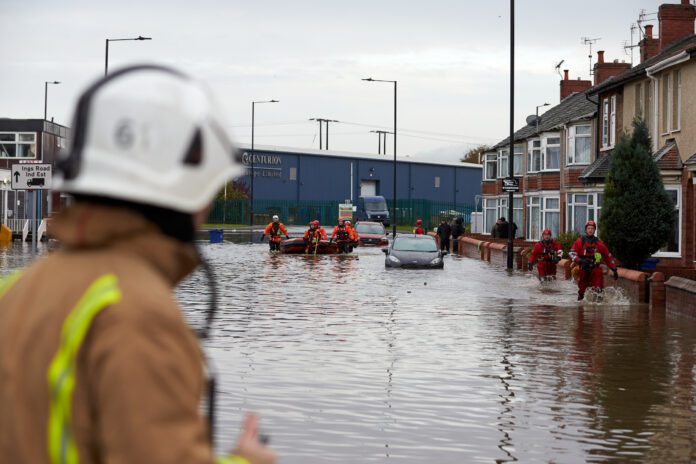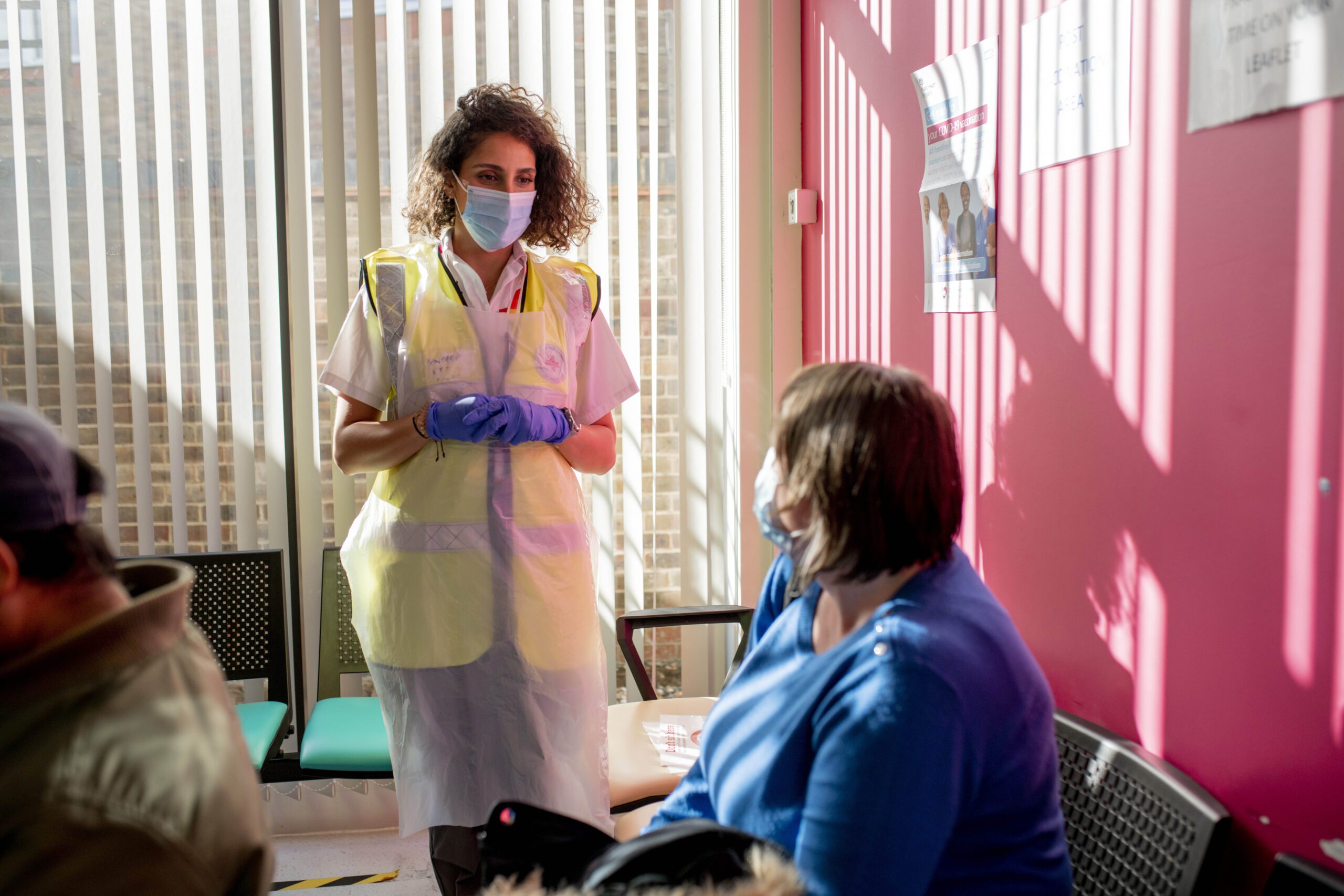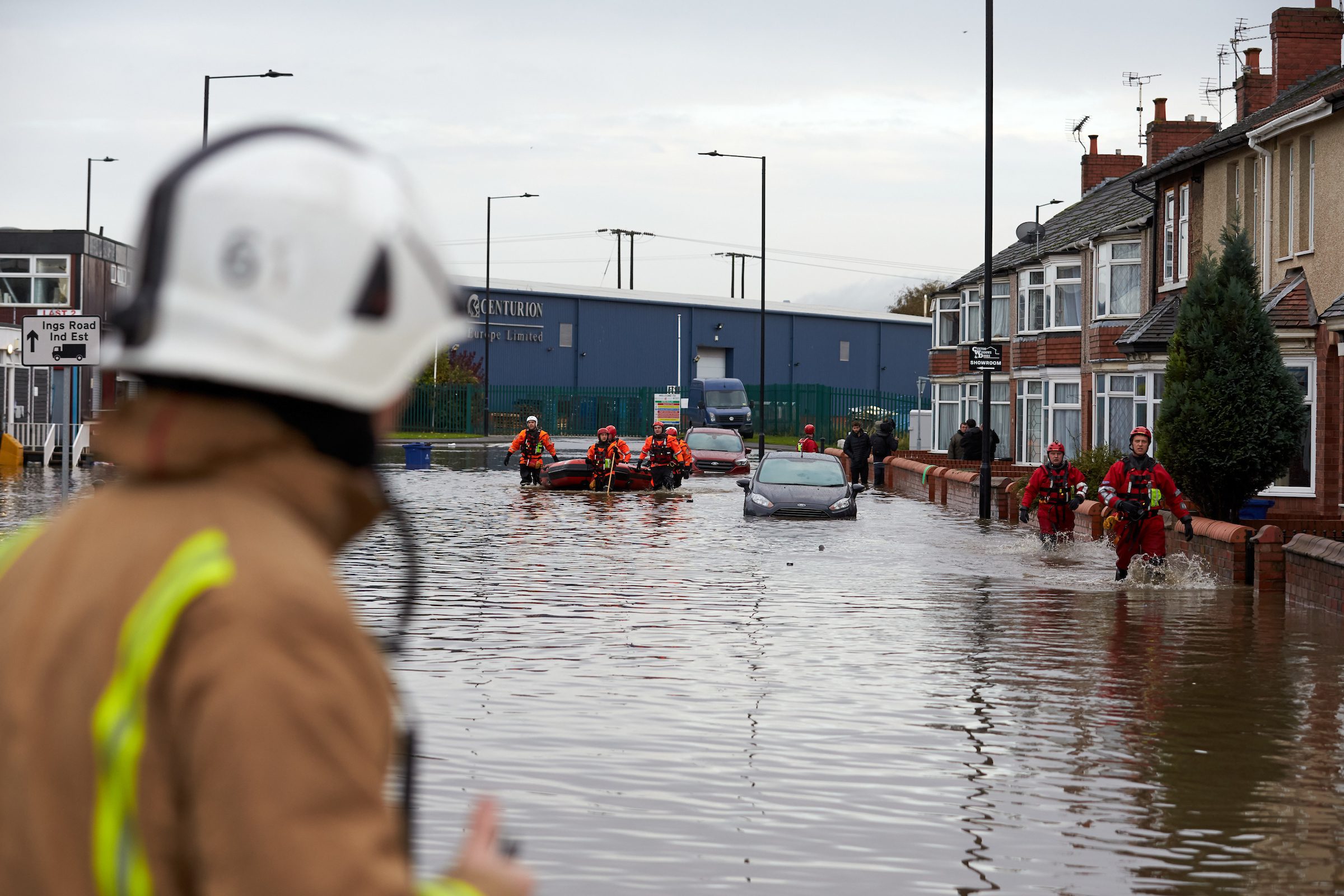
British Red Cross calls for urgent changes to the Civil Contingencies Act, in light of Covid-19 learnings and future risks
New research from the British Red Cross signals that current systems, structures and legislation around emergencies in the UK do not meet people’s needs in a crisis
The new report released today, Ready for the Future, brings together an analysis of previous research into emergency response and in-depth interviews with 15 experts and practitioners.
The British Red Cross review found that what people need to cope and recover from in an emergency can be underestimated, which is why the charity is calling for a refresh of the Civil Contingencies Act.

During the Coronavirus Pandemic, Tala moved to London and became an emergency response volunteer.
She was part of the first volunteer teams to support the Red Cross vaccine rollout work.
This was her first ever deployment as an ER volunteer.
In addition to her work as an ER volunteer, Tala has also supported the Beirut appeal, been a volunteer in refugee services on the Surviving to Thriving programme, and is a community fundraising and a youth engagement volunteer. She is chair of the Youth Leadership Team.
Tala says: “I have had many different roles volunteering with the Red Cross, but the Covid vaccine rollout is something I am so proud to have been a part of. I was honoured to be on the frontline during this historic service and it is an experience I will never forget.”
The main findings include that UK emergency systems, structures and legislation tend to underestimate what people need to cope and recover from in an emergency. The report identifies two particularly urgent areas for improvement: cash assistance and psychosocial or mental health support.
The charity’s research is also clear that there is a need to better prepare for evolving threats, such as climate change and extreme weather, by updating the National Risk Register and developing climate risk resilience, response and recovery strategies
Mike Adamson is Chief Executive of the British Red Cross and Co-Chair of the Voluntary and Community Sector Emergencies Partnership (VCSEP). He says:
“Emergencies in the UK are increasingly visible. From fires to floods, terror attacks to pandemics, they can affect us all, and have profound and far-reaching impacts during and after the initial crisis appears.
“Covid-19 meant that for the first time, the same emergency was on the doorstep of every household in the world. But the impacts of that emergency were felt differently by each individual and their community. This report is our contribution to how we can learn from the pandemic and better respond to future UK emergencies, in a more human-centred way, that addresses someone’s unique situation and needs.
“Emergency response has always been part of the British Red Cross’ bread and butter work. Our new Ready for the Future report shows that the UK’s emergency response structures and legislation needs to be updated and strengthened to better meet people’s needs. What support is available is currently a postcode lottery and more could be done to include the Voluntary and Community Sector (VCS) in emergency response.
“In future, we must ensure that we put people and communities at the heart of how we design and deliver emergency response. In doing so, we will greatly improve the scope, timescales and recovery periods of emergency responses. Now is the time to drive forward change.”
In 2001, the government set out to update and modernise emergency response frameworks, which led to the Civil Contingencies Act 2004. The British Red Cross research suggests that now, two decades on, with learning from the prolonged Covid-19 emergency response, a further refresh is urgently required to raise the country’s preparedness for the future emergencies we will no doubt face. This need is particularly acute given the threat of climate change.

In November 2019, thousands of people were forced out of their homes due to flooding across Yorkshire and the East Midlands.
NB: These photos show the severity of flooding in Doncaster and the work of partner agencies such as fire and rescue services but they do not feature the British Red Cross response.
One of the recommendations from the report is to increase the availability of immediate cash assistance in emergencies in the UK. In 2020, British Red Cross set up the Covid-19 Hardship Fund, working with 450 charity partners to help people facing financial hardship due to the pandemic.
Hannah, a case worker at the King’s Arms Project, one of the charity partners, explained how emergency cash can help:
“Many of the people we work with are in extremely vulnerable situations and at risk of being exploited. People were using the money for food, that was the main thing people were using it for. We have a mum whose children started going to nursery so she would use it [the money] to get the bus in the morning, take the kids to nursery and in the afternoon to collect them.
“It’s really empowering for people to be able to choose what they want to spend the money on. It gives people agency. They know what they need and they can buy it rather than just being given something. I would always choose that way of doing things.”
Help keep news FREE for our readers
Supporting your local community newspaper/online news outlet is crucial now more than ever. If you believe in independent journalism, then consider making a valuable contribution by making a one-time or monthly donation. We operate in rural areas where providing unbiased news can be challenging. Read More About Supporting The West Wales Chronicle























